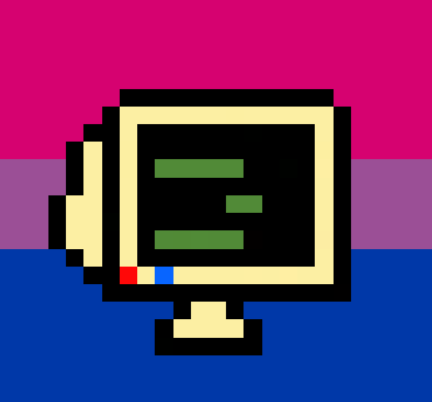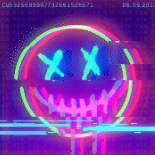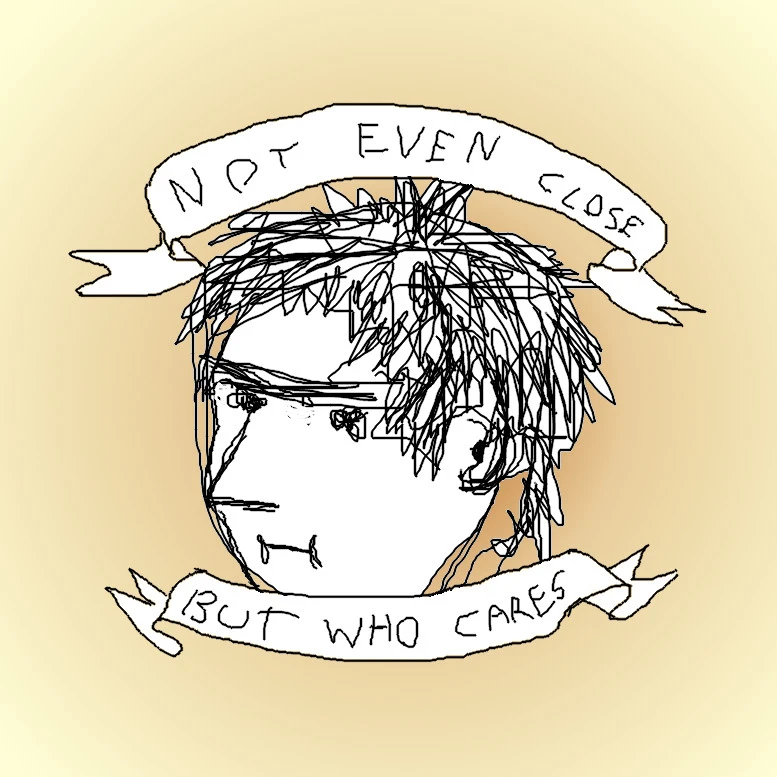I’m old. I don’t understand it.
Every desktop computer has an operating system. Most of them run Windows. Some run MacOS, this is why the software on Macs and other PCs is different.
Linux is another operating system, its free and anyone can see the code its written in.
Linux is popular with nerds and programmers since its easier to do some advanced stuff in. Its popular as an alternative to windows since Windows is progressively getting more annoying to use (updates, popups etc).
Linux is used by servers (computers that run websites, like lemmy), and other stuff like smart appliances.
The android Operating System (used by android phones, like Samsung phones) is based on linux.This is an amazing explanation, and you also managed to keep it relatively short.
Yes but you missed a lot of things of course.
Linux is free software, unlike MacOS or Windows. That means that the software is given users for free, and they can mostly also change it and redistribute it as their own.
This is why there are so many varieties of Linux Distributions, as the used software components are often the same, but they are released in different cadences, have different configurations and behaviors, or different focuses (for example Gaming, Server, Workstation, Lightweight, System rescue, hacking, anonymity).
Free software means that everyone can use it, how they want. Nobody needs to pay, but donations and contributions are crucial. While many big components like the core part “Linux” and others are developed and maintained by bigger corporations (which sell support or systems to mostly enterprise customers), a lot of the Linux software is fully done by people out of love, in their free time.
I appreciate the reminder about donations; just went to drop a little money on Mint as thanks to them!
Is there a Best of Lemmy community? Cause this belongs there.
Your computer is a bunch of parts that need software to make them work. The “operating system” handles talking to the hardware directly, while the programs you run only talk to the operating system. Talking to the operating system is easy, talking to the hardware is difficult, since you may need to speak a hundred different languages to work with every possible network card, sound card, graphics card, etc.
The operating systems you have probably heard of are windows and macOS. Linux is a 3rd one.
Windows is owned by Microsoft, macOS is owned by Apple, and Linux is developed by the community and (typically) released for free. Since anyone can work on Linux, there are tons of different versions of it floating around, that are all slightly different from one another.
Omg this us an amazing explanation thanks
Fun fact: Android is one of those Linux variants. It is, however, so highly modified, that we usually don’t really call it ‘Linux’ anymore. But the core components of Android are most certainly Linux components. So in a pedantic way, way more people directly use Linux than you would think.
There’s pretty much three core OSes out there:
- Windows
- Linux
- BSD
Amost everything else is just a variation of these.
Android, ChromeOS, PS3 OS, tons of embedded systems like car entertainment systems, and of course all the traditional Linux distros like Ubuntu, Mint, PopOS, Fedora, and so on are Linux.
MacOS, iOS, Switch OS, pfSense and tons of embedded systems like routers, and of course all the traditional BSD distros like FreeBSD, NetBSD or OpenBSD and so on are BSD based. (Though Switch OS, to be fair, is mostly it’s own thing, only borrowing significant portions from BSD.)
4/10. No mention of TempleOS.
Nah, this is a really good explanation.
Dude may have been nuts, but he did do something quite impressive for his time.
TempleOS is not Linux!
Have you heard of Stallman’s new project TNL?
Linux is one option for the core, central part of how a computer works, called a ‘kernel’. All programs talk to Linux, which talks to the physical computer.
Windows has its own version of that kernel, Mac has another.
Linux is special because it’s free for people to use, change, and check what it’s doing.
There’s a lot of programs built to work with Linux: together they are what you use to use your computer. Like, Windows is actually lots of smaller programs working together, and Mac OS is lots of smaller programs working together. Most people say ‘Linux’ meaning all these programs running together, with Linux at the core.
In other words, Linux is a system that runs on your computer, so you can run the programs you want (like Emacs, or Inkscape) on top of that.
Since there’s already a bunch of people explaining it I’ll explain why it’s so loved by the users and the hype around it.
Linux has a copy left license meaning no one person or entity owns Linux. It’s open-source which allows any company to modify how it works or just a random person can change the code or fix it. The only restriction on this license is that anyone that makes changes have to share those changes if asked, this why everyone benefits. Anyone can submit those changes willingly to be approved and help contribute. This means that Linux is built and maintained by thousands of companies and 10s of thousands of people all across the world, not for a profit or bottom line (well for the companies like Google it’s probably for profit). But to make something that works the best they can make it out of their passion.
I personally love Linux because I’m sick and tired of fighting my computer and phone to do what I want when all it does is force ads and pop ups down my throat and track my every move. Linux doesn’t have any of that because the people that make it use it and don’t want that, no one does. Since there’s no profit motive we don’t have shit like that.
Ah so it protects your data?
It’s not just protecting your data. You can inspect the source code. It’s open source after all. People can fork it or create new distributions. There are tons of distributions available for Linux. Like a distribution is combination of software, so linux is officially only the kernel. But the operating system ‘Linux’ is much more. Like tools and commands. And user interfaces.
Try to search for terms like: Ubuntu, Fedora, Linux Mint. And so much more. You will see screenshot on the internet how those distributions are looking. And you can customize everything.
And all the software is also free. Free in terms of money and free in terms like freedom of creating a copy inspect the code, change the code etc. See also gnu philosophy : http://www.gnu.org/philosophy/free-sw.en.html
It’s not “protecting your data” in a literal sense, it just doesn’t collect and share it. Your data isn’t specially protected in Linux, it’s just that Windows and MacOS do collect data from your PC and sent it to their owners. So it’s only better for your data protection, because it doesn’t actively share your data.
That’s another thing, with Windows or MacOS installed on your PC, you do not own your operating system, you just bought a license to use it. But you DO OWN the Linux on your PC, it’s yours and you are legally allowed to do with it as you please. And thus, the only master that it serves are you. Not the corporations trying to exploit you for profit.
Ahhhhh thanks for explaining
Beware, things are not that easy with Linux. If you use Windows, you use Windows. There are different versions but they are just differently old versions of the same thing. Same company, same people, same stuff. So you can say things like “Windows shares your data with Microsoft”, because there’s only 1-2 current versions of Windows at a time.
Since Linux is so open, there are thousands of different distributions created by thousands of different companies or even hobbyists doing that on their own time. And since it’s so open, it can be configured any which way.
For example, ChromeOS and Android are two Linux distributions created by Google, and both of them collect and share your data like crazy.
Some of the more classical Linux distributions (like e.g. Ubuntu) also ask you if you want to share data with them, but most of them allow you do decline and many of them really don’t share data at all (unless you run programs that do share data again).
So what you can say about data protection in regards to Linux is:
- It’s not Windows/Microsoft, which shares a lot
- Depending on the distro, it can share just as much as Windows, or nothing at all, or a configurable amount
- There are Linux distros that are very privacy focussed and share little to no data
But no, using any Linux doesn’t necessarily mean your data is protected in any special way.
There have been some great answers already but there are some things I’d like to add: all commercial operating systems (especially Windows and Chrome OS, but MacOS is not at all innocent in that regard) are becoming increasingly focused on data harvesting, advertising and controlling what the user can do with their computer. Linux doesn’t do any of that. Your computer is yours and nobody tries to control what you do with it. And if you use a beginner friendly distribution, it’s not really more difficult to use.
Free as in freedom!
Freedom to do whatever you want, however you want. Including brick your computer.
But honestly, modern distros are really smooth feeling. If you slapped Mint on just about any computer today it will run better and longer, and you’ll quickly find that it’s just as easy - if not easier - to use as Windows or MacOS.
Also its worth noting that MacOS and Linux share genetics that don’t really matter to 99% of users, but if you want your Linux to look and feel like a Mac, you can do that very very easily.
Also the KDE Plasma DE is super fun and I’m addicted to it now
I would argue it’s easier to use than Windows at least, but it is different from Windows so moving from Windows to Linux can be challenging and you have to be willing to adapt. Package managers make the experience so much better for users though, and you don’t have to hunt down random executable online for installs or updates (usually). There’s also no mucking about with a thing like registries in Windows to make it work how you want, which you don’t have to do on Windows but to make it less annoying you do.
So buckle up, it’s story time.
Your computer needs to run software like any other computer does for it to do what you want it to do. There are lots of different parts that do the same thing in different ways and so there are lots of ways to make a computer.
Once upon a time people would write software for specific machines. Anytime a new machine was released, they had to change the software to work on the newer machine. This got real old real fast.
Operating systems come between your software and your hardware. Rather than release a version of your software for each individual type of computer, you just have to release software that works on a specific operating system. So if I sell a program that draws red squares, I would have to release tons of different versions for different machines. That’s expensive and a pain in the ass to maintain. So instead I release my red square program for windows. Now, I describe to windows how to draw that red square with my program and windows handles the task of telling all those different types of computers to do what my program wants it to do.
Microsoft makes windows. Apple makes macOS. But there are others that exist with a different business model. Linux is free and exists under a different philosophy, that a community can share knowledge to replace the locked down and expensive offerings from Microsoft and Apple. To fund this, they may charge for support of the product instead of or in addition to the operating system itself.
When people talk about Linux they are typically referring to a Linux distro that can make up an entire operating system, oftentimes a full replacement of windows or macOS. But technically Linux is just a part of what makes the entire operating system. It’s arguably the most important part, the kernel. Think of the kernel as the core of the operating system. Everything else an operating system does is built on top of the kernel. Linus Torvalds maintains the Linux kernel and he just gives it away.
Linux doesn’t really do a hell if a lot by itself, but a kernel is an incredibly complicated thing to create. So others contribute not just to improving the kernel but making other things that use it to do other things. Because Linus already has a kernel he released for others do what they want with it, it makes things a LOT easier to develop since a huge part of the work has already been done.
All operating systems have kernels and they are the probably the biggest pain the ass part to make. Linus created a simple one years ago and shared it with everyone, who contributed their ideas over the years to enable it to do all sorts of things it couldn’t before.
Now here’s the interesting part: all those people who contributed to developing this thing have day jobs and their employers really don’t want to pay them to reinvent the wheel. So all the big, heavy, expensive, vital stuff that happens behind the scenes that makes our world work needs experienced people to make it work and it doesn’t want to make something only a few people can make work. It would be a catastrophe if the only guy who knew how your shit worked retires, dies, or, dare I say it, asks for a raise. -wilhelm scream-
So if a big company uses Linux, they have an enormous community of talented people they can hire at any time, they aren’t locked into a way of doing things that can request a ransom to continue working (ahem, adobe), and their start up costs are lower.
So who uses Linux? Almost everybody. If it’s online, there’s Linux backing it. Meta (Facebook), Google, Amazon, Apple, even fucking Microsoft uses Linux, and most of the companies using it also contribute back into Linux development because it’s much cheaper than doing it all by themselves.
Now how does this affect you? Linux isn’t just for highly skilled tech professionals running major operations. It’s for that little computer in your desk that just looks at Facebook and internet porn too! Many people are looking for alternatives since their perfectly working windows 10 computer won’t be supported past October anymore and not all of them can upgrade to windows 11. But you can install Linux for free and you’ll be fine.
What makes the kernel such a PITA?
Programming is a balance of compromises, one has to define a balance between optimisation, maintainability, legibility, security and much more.
The kernel handles a bunch of different ‘low level’ things that are quite complicated (Allocating memory to programs, scheduling what programs the CPU needs to run, creating security layers for users, handling temperature and performance throttling, peripherals etc)
Due to its pivotal role in an operating system, the kernel developers walk a very thin line of compromises to ensure that it can be maintained and still remain performant.
They do all of this while ensuring that any updates to the Kernel do not break older systems when they update (fingers crossed) or they do not break programs specific to the user (Userspace programs)
Literally everything depends on it. It has to account for a lot of variables. It has to be compatible forward and backward. There’s also a lot of personalities involved in its development and they all need to get along.
Per se, it’s actually not. There are thousands and thousands of hobby-level kernels floating around. Many university courses actually include making your own simple kernel.
The big issue is that the kernel is the core of the whole ecosystem. Everything builds upon it. So if you build a new kernel, you pretty much need to rebuild everything built on top of it.
As a bad comparison, imagine you came up with a genious new shape for a car fuel hose nozzle. You know, the thing you plug into your car to refuel it. Designing a new nozzle is easy. Getting it made isn’t much harder either. Retrofitting billions of cars to work with that new shape is an almost impossible amount of work. So while making a new nozzle is no problem at all, actually implementing it is almost impossible.
The same holds true for the kernel. Making “a kernel” isn’t a big issue. Getting it to work with all PCs with all their diverse hardware and software is close to impossible.
The Linux kernel and the drivers running in it easily have billions of work hours invested into it, and still it doesn’t work perfectly with every piece of hardware you might have in your PC.
You seem to know a lot about Linux so I wonder if you could answer my question - if I already have software (well, games) installed using Windows, would the same be compatible with Linux or would I have to start from the scratch and try to see if there are Linux compatible versions of these games?
Short answer: yes and no
Longer answer: remember my red square example earlier? Software is typically written for an operating system rather than a specific machine. Each operating system can do similar things but they do those things in different ways. So my red square program for windows would be different that on for Linux or Mac.
When your write software, it calls out of other things in the operating system to do work on its behalf so it’s written with the expectation that what it’s talking to will already understand the things it’s going to say the way it’s already programmed to say them. But when you try to run a windows game on something other than windows, it doesn’t work. It’s like trying to talk to someone when they speak a different language. You can’t understand eachother.
Enter WINE. WINE translates windows instructions into Linux instructions on the fly. It is able to intercept instructions a program sends out to the OS, then translate them to whatever equivalent Linux has.
This works…ish. Because Linux and windows and built entirely differently, there isn’t always a direct equivalent for what a program might ask the OS to do. So WINE has to get clever. WINE has been taught over the years what is close enough to expected behavior for most programs to generally run fine with it. But because there is so much difference between expected behavior and what we are able to fake, it can’t create a solution that works 100% of the time so some apps might work while others don’t. You’ll have to try it to be sure.
But you asked about games and games are a bit more tricky. Games have extra things in them that most other apps don’t have. The biggest concern with games are DRM and anti-cheat code.
DRM (digital rights management) basically tries to keep people from making illegal copies of their games. There are many different methods of DRM but they all expect the environment they are run in to work in a very specific way, so if they see something unexpected, even if it’s technically right, it will fail. The DRM will assume the game is an illegal copy and won’t run. WINE isn’t great with DRM but sometimes it can work anyway.
The other issue is anti-cheat and this has a similar issue to some forms of DRM. With anti-cheat, a game is designed to notice if someone is peeking at its working memory and possibly writing changes that the game didn’t want. So some of these install very low-level drivers in the system that tell the game what is spying on its memory. Some DRM systems work this way too.
WINE is super clever, but remember that it is only able to fake an environment and translate commands on the fly. It needs equivalents to exist in Linux or at least something close enough it can make up the difference. These anti-cheat drivers are basically malware because they don’t follow the rules that normal software does. They don’t behave like normal software does. They need to install at the kernel level and mess with things that deeply. Linux kernel modules DO exist but they work entirely differently from windows kernel modules and there’s no way to translate something that low level in real time. There’s also no interest in creating such a technology as even Microsoft has admitted it was a terrible idea and are now kicking third parties out of its kernel thanks to the crowdstrike incident.
So if a game calls out for that anti-cheat software or DRM driver saying “hey you’ve got my back, right?” There’s nothing there to answer it. So the game won’t run.
There is some good news though. For many reasons, there has been massive blowback against DRM over the years and many vendors are paying attention and selling games without invasive DRM and anticheat measures. GOG has lots of DRM-free games and there are plenty of cracked games out there that had these obnoxious bits of code yanked out if you know where to look. There’s also plenty of small, indie games that never had DRM or kernel-level anti-cheat code in the first place and those have a much higher success rate of running under WINE. Some of them even have native Linux versions. (If you install zandronum on Linux natively, no wine, you can run all zandronum games, like doom or megaman 8-bit deathmatch)
Thank you, that was very helpful.
You know how a lot of computers use windows? And a lot are macs? And there’s a difference between the way you have menus and apps and stuff? Linux is a third way to use your computer. But there’s a lot of versions of it. It doesn’t matter what kind of computer you put it on either. New, old, windows, Mac, mini computers, old laptops. Linux is simply another way to use your computer. It’s really cool if you’re into that kind of thing.
That sounds very clever
So you know how your phone runs android or iOS? Think of windows as one, and Linux as the other if they could both run on the same hardware.
In common usage, at least, it’s an ecosystem of open source system software that sprang up around the Linux kernel. What exactly a kernel is might not matter to you.
The practical upshot is that you can run a computer without any code on it on it that isn’t publicly accessible (from Apple, Google or Microsoft). There are other ways than Linux if you’re committed, but none nearly as well developed.
This is good, because Linux is free of cost, free of restrictions on what you do with it, and experience has shown that open source code is much more maintainable and less likely to contain bugs and security vulnerabilities. (Basically, if any problems come up someone out there is likely to fix them, while closed-source software is rarely touched by anyone other than the original team)
Just for fun, and because someone has to post the meme:
I'd just like to interject for a moment.
What you’re refering to as Linux, is in fact, GNU/Linux, or as I’ve recently taken to calling it, GNU plus Linux. Linux is not an operating system unto itself, but rather another free component of a fully functioning GNU system made useful by the GNU corelibs, shell utilities and vital system components comprising a full OS as defined by POSIX.
Many computer users run a modified version of the GNU system every day, without realizing it. Through a peculiar turn of events, the version of GNU which is widely used today is often called Linux, and many of its users are not aware that it is basically the GNU system, developed by the GNU Project.
There really is a Linux, and these people are using it, but it is just a part of the system they use. Linux is the kernel: the program in the system that allocates the machine’s resources to the other programs that you run. The kernel is an essential part of an operating system, but useless by itself; it can only function in the context of a complete operating system. Linux is normally used in combination with the GNU operating system: the whole system is basically GNU with Linux added, or GNU/Linux. All the so-called Linux distributions are really distributions of GNU/Linux!
someone has to post the meme:
No, no one needs to post the embarrassing speech where stallman tries to ride linus’ coat-tails.
He’s not totally wrong to be bugged about it. He basically is the father of modern free software, and by extension all the non-kernel components of a typical Linux machine, but the setup ended up named after another guy and an obsolete thing from Bell labs.
Simplified explanation (shut up, Richard Stallman) : It’s an operating system. In the same way a PC (or any other computer) has Windows (or OsX/MacOS, android, et.al.) as the connecting layer between the hardware and individual programs.
Linux can serve this role as well, and as it’s free and open source, it’s particularly popular among the tech and privacy enthusiasts here on Lemmy. Some use it for everything, some use it alongside windows (dualbooting), and some use it in a professional setting.
Linux is especially common on servers, but it’s also gaining a lot of ground in the desktop space as well. Since Linux is free to distribute, many have over the years made lots of nux distributions specifically tailored towards particular use cases.
Source: Linux user of 25ish years.
Tip: The Linux mint installer can boot into a fully fledged Linux without touching anything on your hard-drive, so if you want to check it out without installing, you can.
Like you’re 5… Ok.
Do you play videogames?
On the computer or on the TV?
Like Xbox? PlayStation?
Cool! Xbox and PlayStation are both “gaming consoles” and they are kinda not too different from a computer, but they’re computers just for videogames. Even like a phone, or a Nintendo switch is a computer.
All computers have operating systems. Think of this as what’s on the screen when the computer isn’t doing much other than being on. Like the desktop, the home screen. That’s kinda your operating system. It’s the command center where you can use your computers tools!
Here’s the deal. Linux? It’s an operating system.
PlayStation uses their own modified version of Linux.
Xbox doesn’t. They use a modified version of Windows (kinda).
Apple phones use a modified version of Apple computers operating system.
Android phones use a modified version of Linux.
the Operating system in your computer can be Linux, too! 🤓
Apple’s operating system is based on UNIX
Doesn’t PlayStation use BSD…?
I was too afraid to ask, thanks…
Linux? Its kinda like…
Gonna find my baby, gonna hold her tight
Gonna grab some afternoon delight
My motto’s always been “When it’s right, it’s right”
Why wait until the middle of a cold dark night
When everything’s a little clearer in the light of day
And we know the night is always gonna be here any way
Thinkin’ of you’s workin’ up my appetite
Looking forward to a little afternoon delight
Rubbin’ sticks and stones together make the sparks ignite
And the thought of rubbin’ you is getting so exciting
Sky rockets in flight
Afternoon delight
Afternoon delight
Afternoon delight
I donno man, that sounds kinda crazy
Thats because it is crazy. Crazy in love
This is like if Chef from Southpark would try to explain it.
It’s from the movie Anchorman.
Thanks for the memories! “Af-af-after-noon-delite!”
Its the software you use to run other software on the computer. Microsoft’s version is called “Windows” and Apple’s is called “MacOS”.
Lots of great explanations, but something I didn’t see, or missed:
- If it’s free, how do the companies making it stay in business? Not all Linux variants, or distributions/distros (there are a lot), are backed up by a company. The ones that are offer an enterprise version (like Microsoft sells Windows Server) for a price. Since “Linux” refers to the core of the OS, and its license dictates that it must be offered for free, you can get these enterprise versions for free. They charge for updates, levels of support, and some in-house developed solutions that work well with their distributed.
- If the source code is open and maintained by a community for free, how is that better that something made by professionals at a company? This is a huge topic, but to boil it down: First, the projects responsible for Linux distros and most of the utilities found within are run quite competently. It’s quite difficult for some random person to insert janky code. Second, most of the people contributing to these projects are often professional coders in their “day job,” or their “day job” includes contributing & maintaining this project. Third, when some random person finds a bug or exploit in these utilities and operating systems, the process for reporting and resolving it is pretty transparent compared to what you’ll find with for-profit software companies. Because the code isn’t proprietary, processes involved in auditing it tend to be open to the public.













